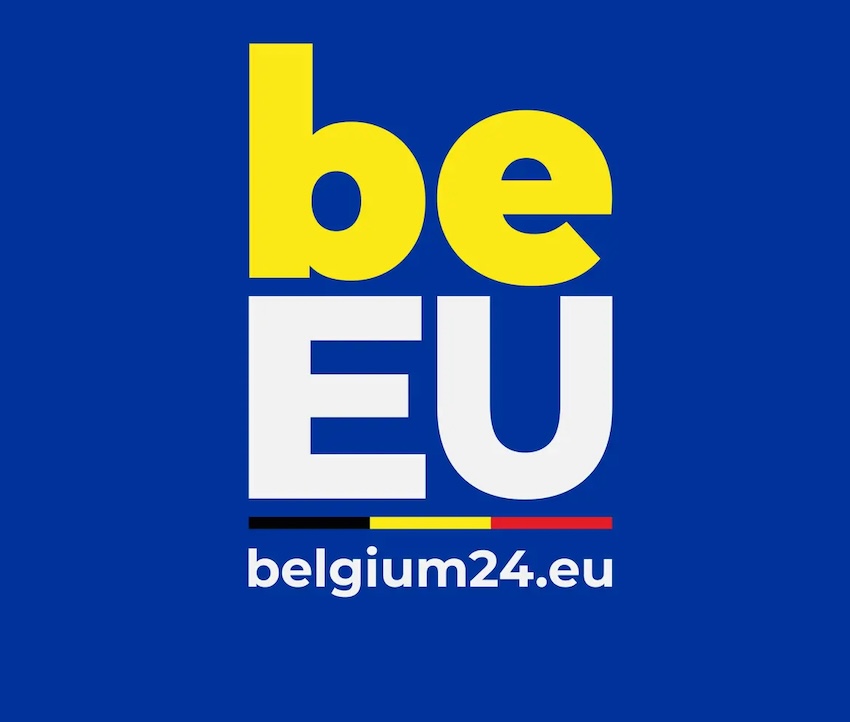“It was a privilege for Belgium to take this role for the 13th time in our Union’s history. This was truly a dealmaking presidency,” said Prime Minister Alexander De Croo.
Edited by Anna Popper

The Belgian Presidency of the Council of the European Union has successfully concluded its six-month term (1 January 2024 – 30 June 2024) marking substantial progress on multiple fronts.
Important legislative and political results were achieved during this period, with a focus on protecting EU citizens, strengthening Europe’s competitiveness and preparing the EU for future challenges and to make the EU future-proof.
Belgium successfully accomplished the triple objective of its Presidency: to drive forward an ambitious legislative agenda, to effectively respond to the EU’s ongoing challenges and crises, and to prepare the debate on Europe’s future.

“The objective of our Presidency was to deliver on an ambitious agenda for Europe – to protect our people, strengthen our economy and prepare Europe’s future while upholding our values. We drove forward the legislative work, dealt with crises on and at the shores of our continent and supported work on preparing Europe’s future. The Belgian presidency brought competitiveness back to the heart of our discussions, laying the ground for a European Competitiveness Deal to be presented by the end of 2024. These results are a testament of the Belgian spirit to build compromises and get people to work together.
It was a privilege for Belgium to take this role for the 13th time in our Union’s history. This was truly a dealmaking presidency,” – said Prime Minister Alexander De Croo.
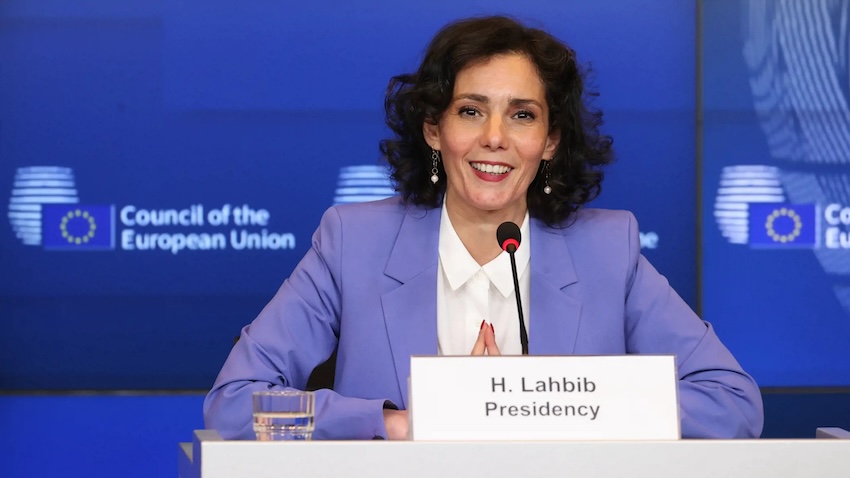
“As Minister for European Affairs, I am extremely proud of the results of our Belgian presidency. We managed to secure as many agreements as possible – more than 70 – before the end of the legislature, and laid the foundations for the strategy that the Union must deploy to face up to future challenges, strengthen itself and grow even further. Expectations were high and we rose to the occasion thanks to the efforts of all those who make Belgian diplomacy such an internationally recognised field of expertise, in particular thanks to the Belgian art of compromise, which once again worked miracles. The Belgian presidency highlighted Belgium’s commitment to fostering unity, promoting sustainable policies and improving our collective response to global problems. We placed the general interest above national interests, which is the best way to move the Union forward. With satisfaction for the work well done, we pass on the torch to Hungary, to whom I wish an equally successful presidency,” said Hadja Lahbib, Minister of Foreign Affairs, European Affairs, and Foreign Trade of Belgium.

The Belgian Presidency of the Council of the EU ends with significant achievements:
The presidency concluded 74 legislative files in trilogue and advanced on about 60 more legislative files in the Council, demonstrating Belgium’s ‘culture of compromise’. The presidency worked in a spirit of close consultation and cooperation with the European Parliament, the European Commission, the member states and the Spanish and Hungarian presidencies.
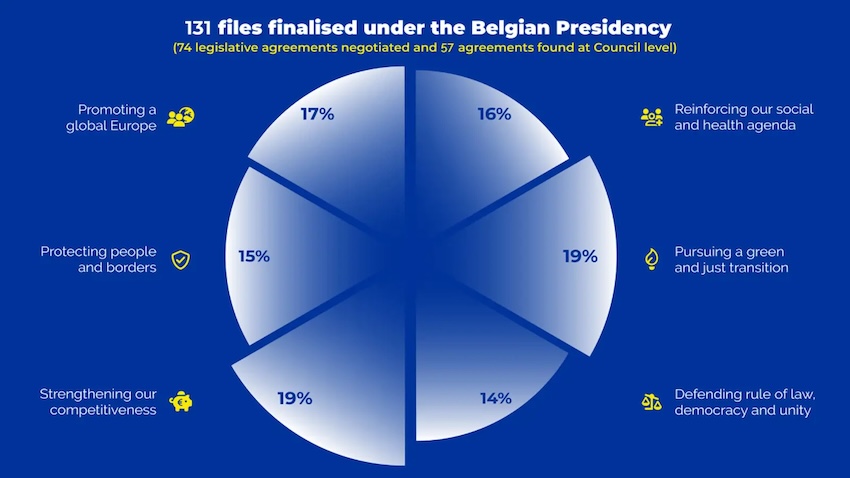
This legislative work was focused on six priorities:
1. Defending the rule of law, democracy and unity

The Belgian presidency championed fundamental democratic principles, organised dialogues on rule of law and facilitated progress in judicial reforms. The presidency also advanced the EU’s enlargement process as a beacon for stability and prosperity on the European continent by obtaining Council approval of the Negotiating Frameworks for Ukraine and Moldova, and organising Intergovernmental Conferences with Ukraine, Moldova and Montenegro. The adoption of the European Media Freedom Act and the Anti-SLAPP Directive was completed, reinforcing press freedom and protection against abusive lawsuits. A comprehensive citizens’ participation programme was implemented, including a first-ever presidency citizens’ panel on artificial intelligence, aimed at enhancing citizen engagement and forging trust in the EU.
2. Strengthening our competitiveness

The presidency worked to boost the Union’s competitiveness drivers, secure its economic resilience and achieve the full potential of the Single Market. Significant strides were made in enhancing the EU’s economic resilience and competitiveness. The presidency reached agreements on the review of economic governance and the Multi-annual Financial Framework 2021-2027. It also pushed forward the completion of the Capital Markets Union and finalised the adoption of the Net-Zero Industry Act. The Belgian presidency identified necessary EU measures to achieve a resilient, sustainable and interconnected European electricity network and presented a presidency report on work towards a new European Competitiveness Deal.
3. Pursuing a green and just transition

The Belgian presidency took a holistic approach to drive the green and just transition.
Notable achievements include agreements on stricter air quality standards, ensuring recyclable packaging by 2030, and facilitating high-quality carbon removal activities.
Progress was also made on sustainable transport policies and international environmental efforts.
4. Reinforcing our social and health agenda

Significant steps were taken to strengthen social dialogue and promote the social economy. The presidency signed the Tripartite Declaration for a Thriving European Social Dialogue and facilitated the adoption of the Liège Roadmap for Social Economy in the EU. On health, the Belgian presidency achieved a political agreement on the regulation for an European Health Data Space, finalised the work on standards of quality and safety for substances of human origin and adapted the regulation on in vitro diagnostic medical devices. It also achieved approval of Council conclusions on the Future of the European Health Union.
5. Protecting people and borders

The presidency enabled the finalisation and adoption of the Pact on Asylum and Migration, aiming to make the Common European Asylum System more effective and fair.
It also brokered deals to combat various forms of crime and violence, including human trafficking, money laundering and drug-related crimes.
6. Promoting a global Europe

At the presidency’s initiative, European defence and preparedness were enhanced, and the EU’s open strategic autonomy in trade matters was bolstered. The presidency advanced on all three pillars of the Economic Security Strategy. Regarding mutually beneficial and principled international partnerships, the Belgian presidency focused on human development and health, especially in fragile and non-mediatised contexts, and acted to fulfil the EU’s humanitarian commitments. To enhance African health sovereignty through the Global Gateway Strategy, the Presidency organised an EU-AU high-level meeting in Brussels as well as a mission to Addis Ababa in Ethiopia. Finally, relations with the Neighbourhood, African and ASEAN countries as well as the Indo-Pacific were highlighted within the EU’s strategic foreign policy.
Responding to global crises

The second major responsibility of any presidency is to quickly and effectively respond to any crises that may arise during its term. The Belgian presidency demonstrated its ability to respond swiftly to ongoing challenges in the world. These included responding to Russia’s full-scale war in Ukraine, reaffirming and acting on the EU’s commitment to peace in the Middle East, protecting electoral processes from undue interference, and addressing the urgent concerns of European farmers.
First and foremost, the Belgian presidency brokered agreements to secure enduring aid to Ukraine, most significantly through the Ukraine Facility, which will provide Ukraine with €50 billion in EU financial support for rehabilitation, reconstruction and modernisation in regular instalments by 2027. Resolute action was also taken to forcefully reduce Russia’s ability to wage its war of aggression. The 13th and 14th sanctions packages in response to Russia’s full-scale invasion of Ukraine were adopted under the Belgian presidency.
Moreover, the conflict in the Middle East was at the heart of the Belgian Presidency’s concerns. The European Council came together on Gaza to demand a sustainable ceasefire, the liberation of hostages, and immediate humanitarian access. The Belgian presidency continued the work in the IPCR roundtable on the Middle East.
The Belgian Presidency also took action to protect Europe’s democratic processes against foreign interference, cyber and hybrid threats and other attempts to undermine elections, especially the European elections on 6-9 June. It did so by starting work on the Directive on third-country interest representation (as part of the Defence of Democracy package), by activating the Integrated Political Crisis Response (ICPR) mechanism, reinforcing existing digital toolboxes and reaching agreement on a framework for the practical establishment of hybrid rapid response teams (HRRT). Through its efforts on these fronts, the Belgian presidency has demonstrated its capacity to respond to crises flexibly and effectively.
Preparing Europe’s Future

The third and final mission of the Belgian presidency was to help make the EU future-proof. To that end the presidency prepared a Progress Report on the Future of Europe, focusing on EU values, policies, budget, and governance. It thereby took into account the triple challenge of retaining and improving the EU’s internal functioning and capacity to act, while adapting to a new geopolitical reality, and preparing for enlargement.
To boost the Union’s competitiveness drivers, secure its economic resilience and achieve the full potential of the Single Market, the Belgian presidency presented also a Stocktaking Note on Competitiveness.
The Belgian presidency underscored that a modern, competitive Europe requires strong Europeanvalues and well-funded institutions that evolve with the times. To this end, it has championed substantial debate within the EU, both among experts and at the highest level, on each of these aspects. During these discussions, there was significant support aimed at improving the overall working methods and functioning of the EU and its institutions.
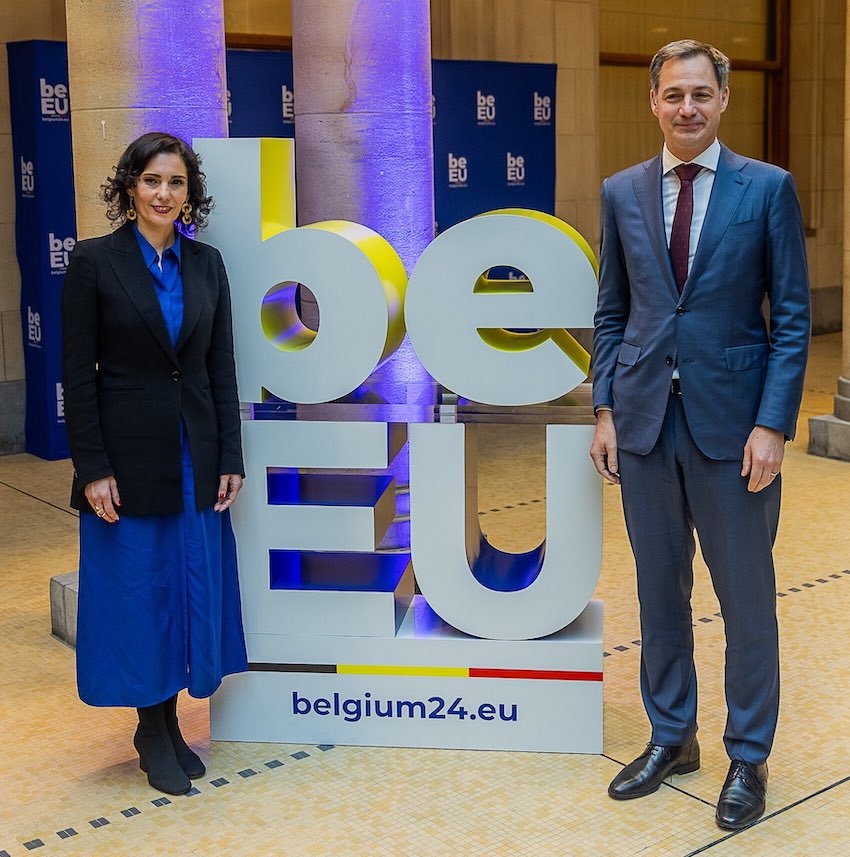
While the debate on future reform of the European Union remains ongoing, the Belgian Presidency is proud to have contributed to the continued endeavour towards an ever-closer Union.
The Belgian presidency’s achievements underscore the EU’s capacity to adapt to changing circumstances while maintaining its core values and objectives.
As the torch passes to the next Presidency, assumed by Hungary, the groundwork laid by Belgium will continue to shape the EU’s trajectory in the coming months and years.
On 1 July 2024, Belgian Prime Minister Alexander De Croo formally handed over the rotating Presidency of the Council of the European Union to Hungary at a meeting with Prime Minister Viktor Orbán in Brussels. The term of the Hungarian Presidency takes place from 1 July to the 31 December 2024.



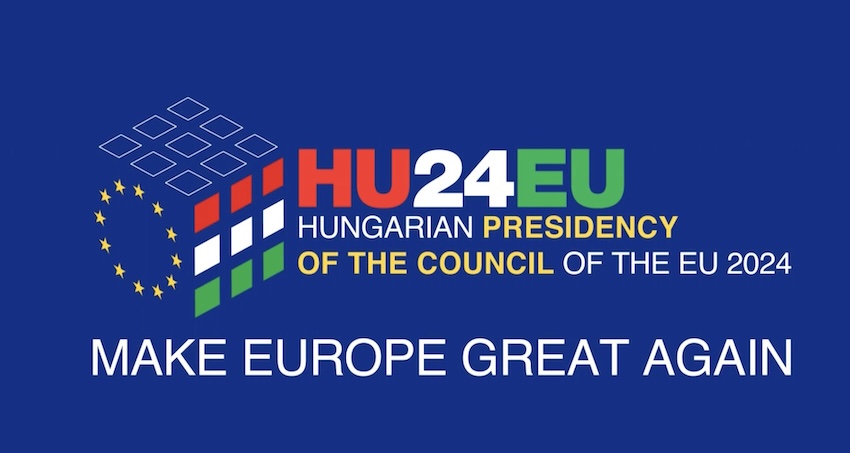
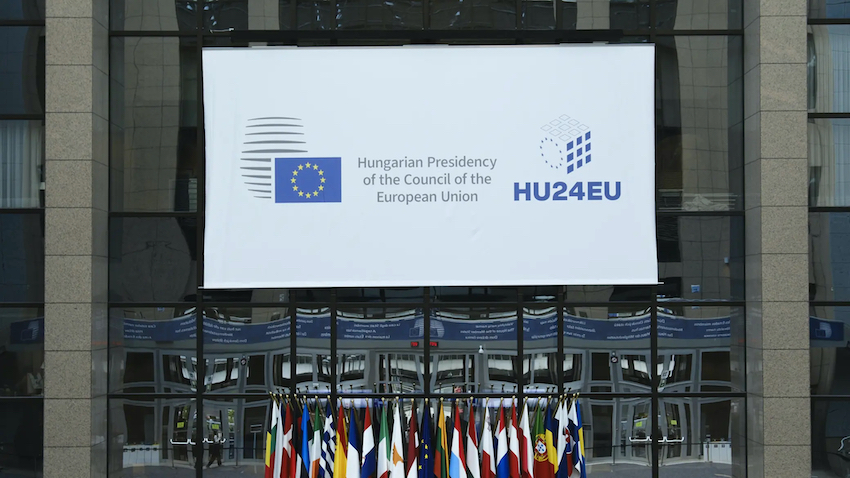

Source: Embassy of the Kingdom of Belgium in Hungary
Photos: Belgian-presidency.consilium.europa.eu, Hungarian-presidency.consilium.europa.eu





